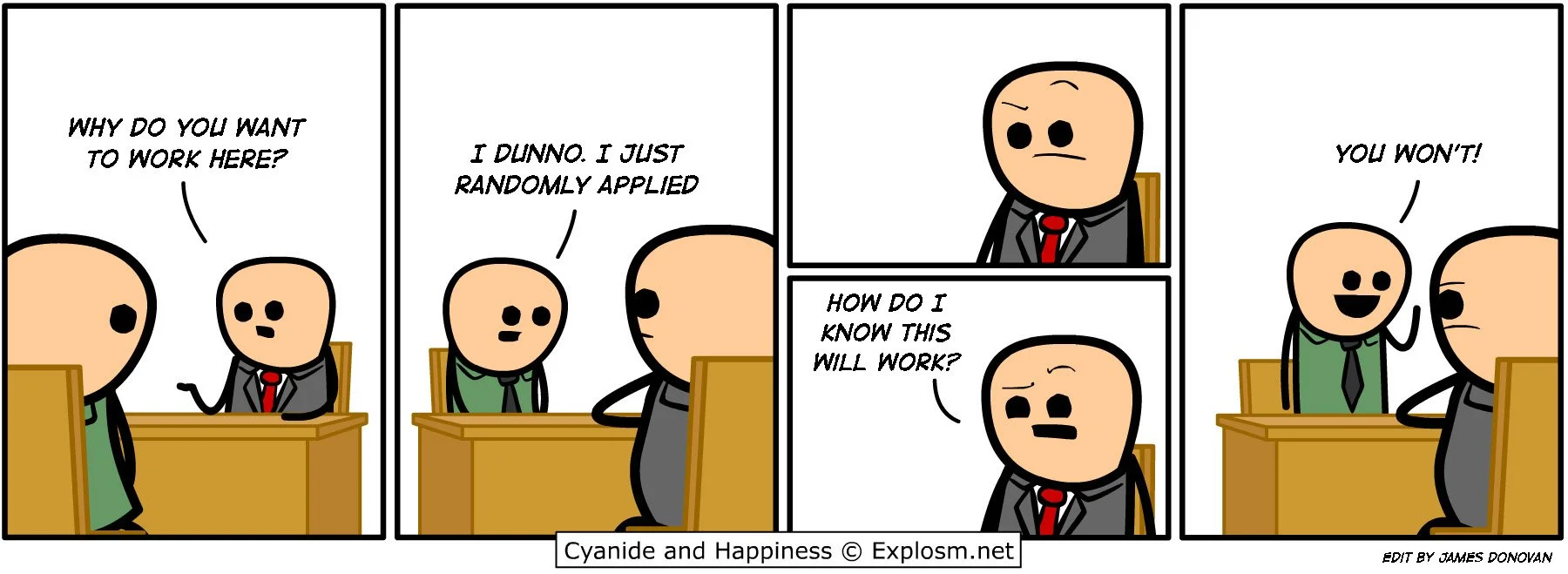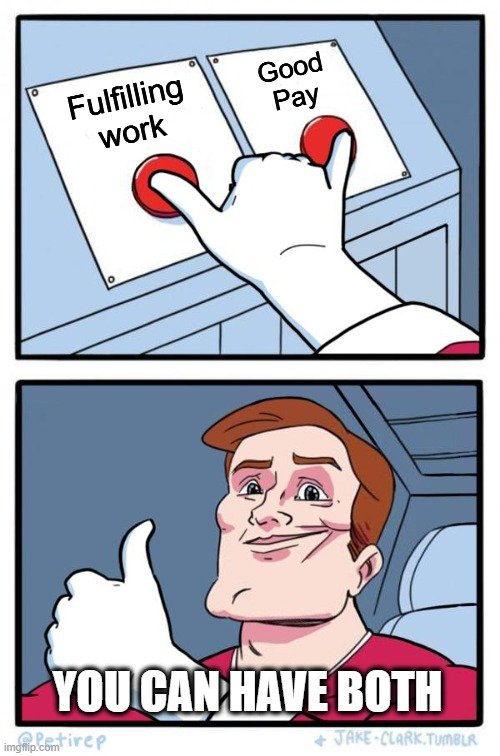Solving The Work Problem
One of the most important career search concepts I find myself frequently discussing with recruiters and candidates alike, I call “Solving The Work Problem”. The idea is simple, essential, but often overlooked.
First, work is one of the most important aspects of our lives. At its most fundamental, work is how you make a living, but it also determines the problems you engage with, the people you interact with, and is a huge factor in your quality of life. Choosing the right career is part of a very short list of core life decisions and if we want to get the most out of our lives, optimizing work should be a main focus. So effectively solving the work problem means taking the time to clearly understand the work that is the best fit for you and your life goals.
Solving the work problem is not easy. You have to figure out not only what you are good at and passionate about, but also where you can be successful, fulfilled, and make money, in both the short and the long term. You have to reflect critically on yourself, learn from experience, and research the job market. Solving the work problem takes a lot of, well, work. But the time you put into solving the work problem is literally the best investment you can make to optimize your career.
As the recruiter who takes the first call with a candidate, I have a half hour to not only qualify, assess, and confirm alignment, but also sell our team and the opportunity. This means I need to be able to understand the quality of a candidate in only a few short questions. And the questions that I find are the biggest indicator of a quality candidate are around how the candidate has approached solving the work problem.
Living your life is a little like running a business. You are your own employee and your own boss. You balance your goals, workload, and development. And your career, being one of your main goals, is an important problem to solve for the “business of you”. So, just like how a recruiter might ask you how you have solved previous problems and projects at past jobs to assess your abilities, I ask how people are solving the problem of their career.
My logic is that no one should care more about your life than you. And if you are really running the “business of you” well, you have really thought about, researched, and planned your career. You should be able to talk about what you care about in the right job and what you are doing to set yourself up for success. I think it can certainly be said that you should care about your personal success more than you would care about a company’s success. So how well you solved the work problem is a proxy for the upper limit of how well you would solve any problem in the workplace.
So if a candidate gives weak, generic answers to what they are looking for in a role, and their personal career goals, it is safe to say they have not thought very critically about solving the work problem. And if they aren’t motivated enough to think carefully about the work problem that has such a profound importance in their life, it is hard to think they would come to a company and be able to solve company problems much better.
On top of this, if a candidate knows what they want, it is much easier to discover if there is a fit between candidate and company. It is great if someone can do the work, and while it is a necessary element, it is ultimately insufficient. If the candidate isn’t happy doing the work, they will underperform or leave. So by understanding what a candidate is looking for in their work and making sure the company can provide that is critical to making a successful hire that not only is competent in their role, but will be a long term fit.
I can also sell a candidate better on the role if I know what they are looking for. You are looking for a role with engaging and interesting work? Well I will make sure interviewers know to talk about the problems we are solving and why they are exciting. Do you care about working for a team lead you can learn from? I will make sure the manager talks about team training and growth. Just like a salesperson needs to know what problems the customer is trying to solve, a recruiter needs to know what a candidate is looking for in their ideal opportunity.
This selectivity is also a very good signal for recruiting teams. If you do have multiple companies who want to hire you, you have to create criteria by which to judge and select your optimal choice. So good candidates, often by necessity, have solved the work problem in great detail. Even if you don’t have a lot of options, you should still want to optimize and send the right message, so it is in your best interest to define what you are looking for in your ideal opportunity.
Ultimately, a candidate who knows what they want is best for both sides. If I know we can’t give a candidate what they are looking for, despite their ability to do the work, it is not going to be a long term fit and therefore not a good hire. If a candidate knows what they are looking for, it is a sign they have given due attention to solving the work problem and it is easier for both sides to assess long term fit.
I am sharing this because I talk to many candidates who seem smart and competent with their work, but fall flat when asked about what they are looking for in their next opportunity. They often give generic answers that belie a lack of thought. This baffles me because this question is not just some generic interview question, but a critical question that we all must solve to get the most from our work experience. Don’t let this be you. Take the time to understand what you want from your career and be clear about this when interviewing. As I have show, the benefits of solving the work problem will not only orient you toward your ideal career path, but also help you achieve it.





